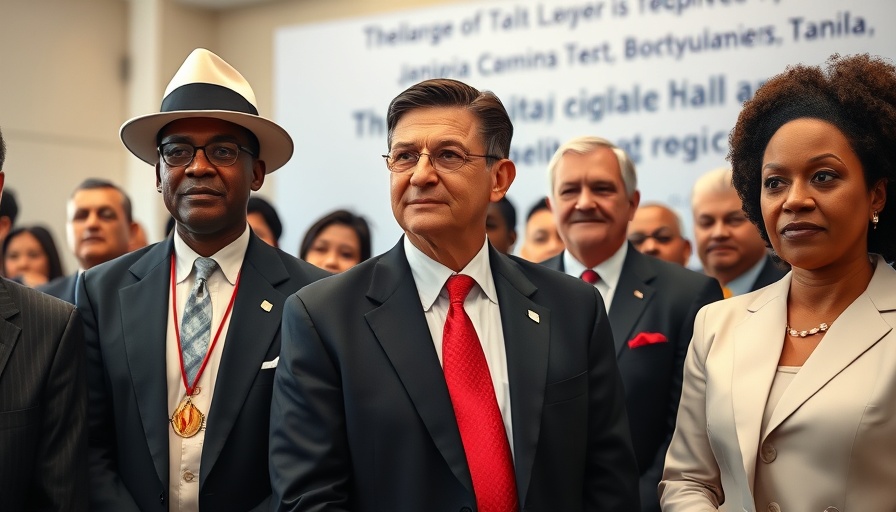
The Growing Influence of General Ravalomanana in Madagascar
In the political landscape of Madagascar, few figures loom as large as General Richard Ravalomanana. Appointed as the head of the Senate, Ravalomanana wields significant influence that links closely to the military's support and the backing of President Andry Rajoelina. This dynamic is raising eyebrows not just for its implications for governance and democratic processes in Madagascar, but for how it resonates with broader themes in African politics.
Historical Context: A Legacy of Military Dominance
Madagascar's political history is marred by military coups and governmental instability. The legacy of military influence in governance can be traced back through numerous regimes, often overshadowing civilian leadership. General Ravalomanana's rise is emblematic of this trend, with many spectators noting the potential for continued military dominance that may lead to a troubling cycle of governance intertwined with militaristic measures. In this context, the recent positioning of Ravalomanana offers a reminder of the tenuous balance between democratic rule and military involvement in Africa.
The Role of the Military in Modern Governance
The backing of the military should incite discussions regarding its role in sustainable governance. While military support can provide stability in times of unrest, whether this leads to a robust democracy or tyranny is open to question. As discontent grows regarding economic issues, from poverty to unemployment, the implications of a military-backed senate could lead to either progressive reforms or exacerbate existing tensions.
The Need for Democratic Reforms in Madagascar
As Ravalomanana gathers power, the calls for democratic reforms are becoming more pronounced among the populace. Citizens are advocating for a government that prioritizes human rights, transparency, and genuine democratic processes. However, as demonstrated in previous administrations, the challenge lies in ensuring that these reforms are not just promises on paper but are embraced by the leadership.
Implications for the African Continent
The divergence of governance systems in Madagascar reflects a larger continental discussion regarding democracy in Africa. Many nations face the dilemma of balancing military influence and civilian rule, and Ravalomanana's ascent can serve as both a case study and a warning for other African nations grappling with similar issues.
Cultural Underpinnings: The People’s Voice
Public sentiment towards Ravalomanana remains a point of contention, with some viewing him as a potential reformer while others see the shadow of authoritarianism. This divergence highlights the need for robust dialogue and engagement with communities. Ensuring that voices from all sectors, especially youth and marginalized groups, are included might foster a more inclusive political environment and challenge the status quo.
Call for Global Engagement and Support
As Madagascar stands on a crossroads shaped by military influence and pressing economic challenges, the international community plays a crucial role in promoting democratic values and supporting initiatives that encourage accountable governance. This engagement is vital to prevent a backslide into authoritarianism and to foster gradual yet necessary progress towards a more equitable society.
Conclusion: The Future of Madagascar’s Governance
While General Ravalomanana's rise may bring hope for some, it also must be met with caution and critical engagement from the populace, the government, and the global community. The path ahead requires a collective effort to ensure that leadership serves the people, promotes democratic values, and nurtures the rich cultural and political tapestry of Madagascar.
 Add Row
Add Row  Add
Add 




Write A Comment